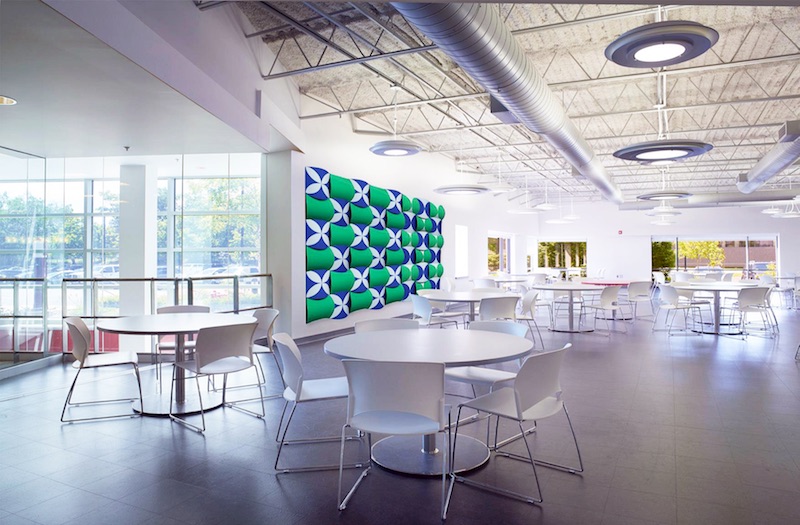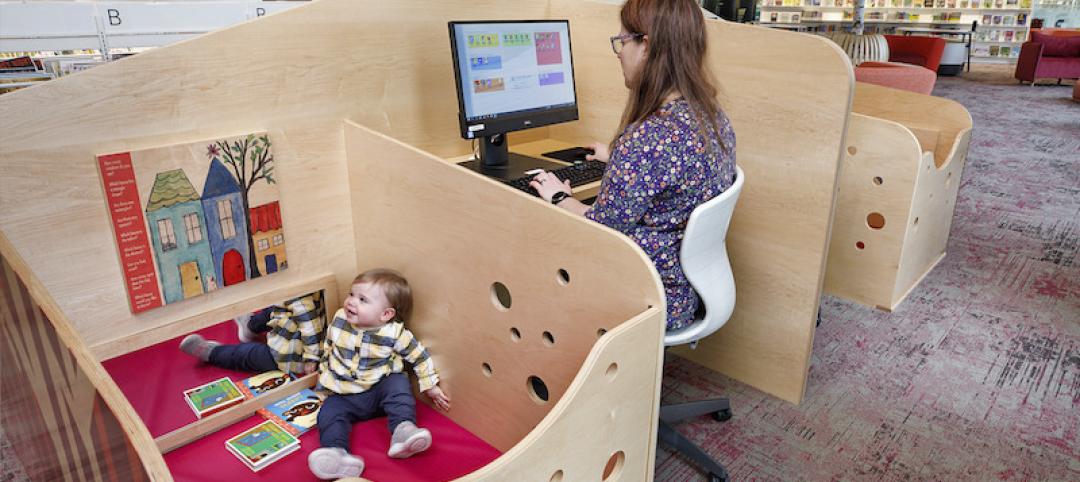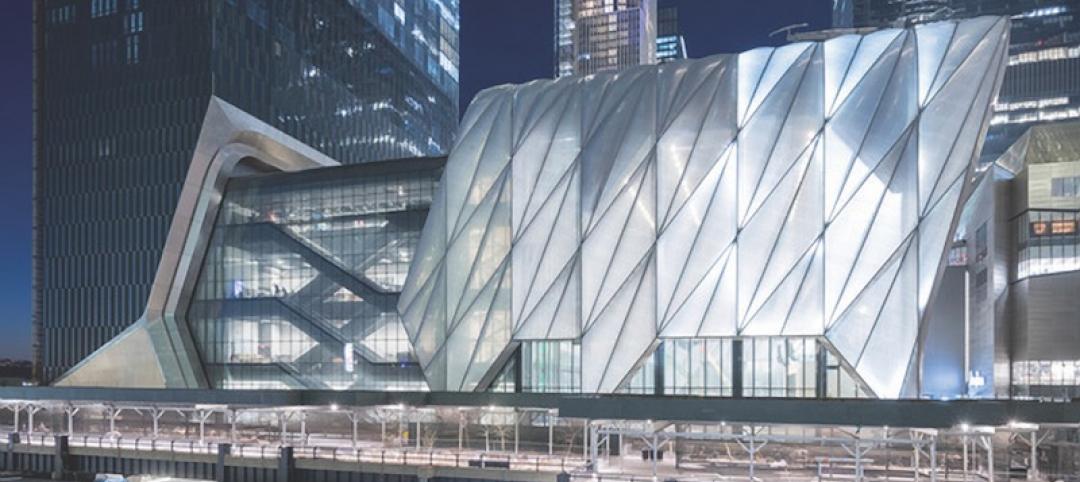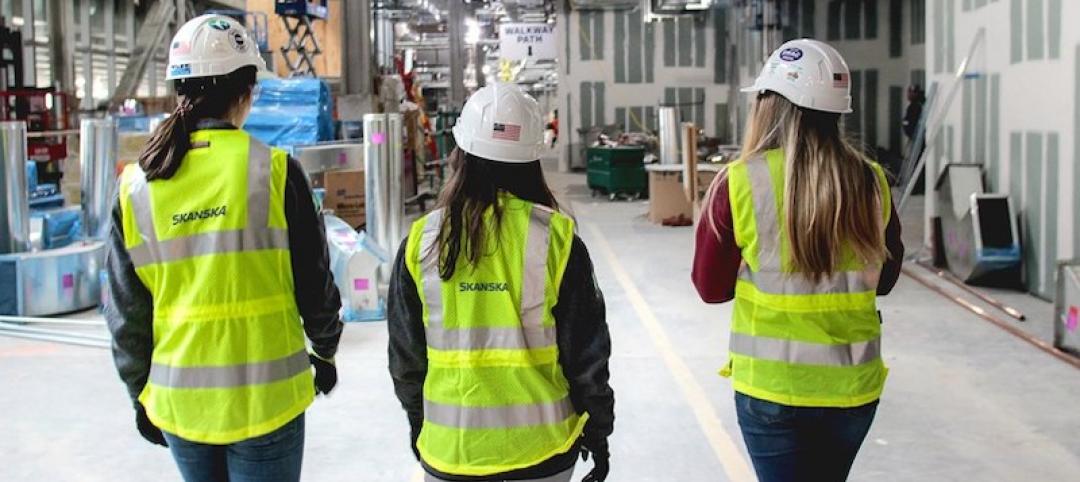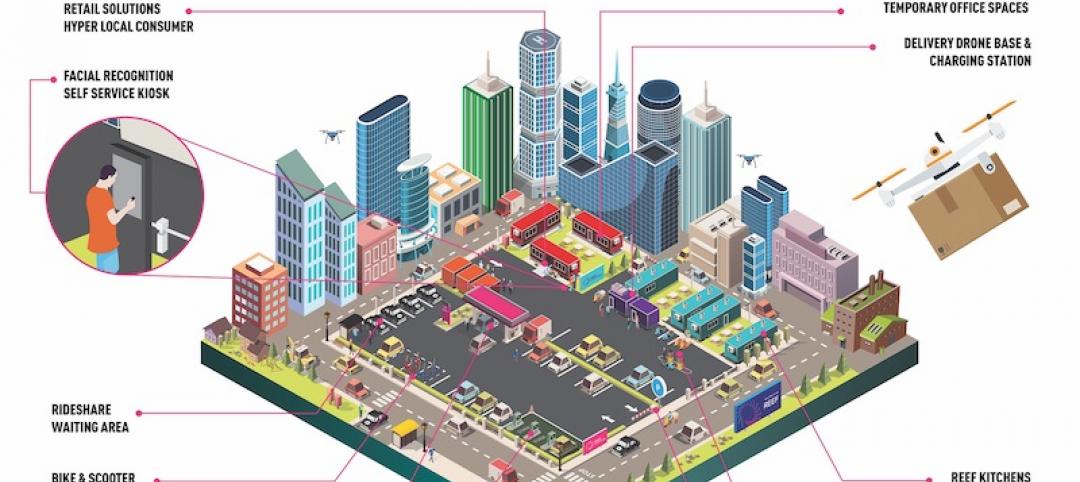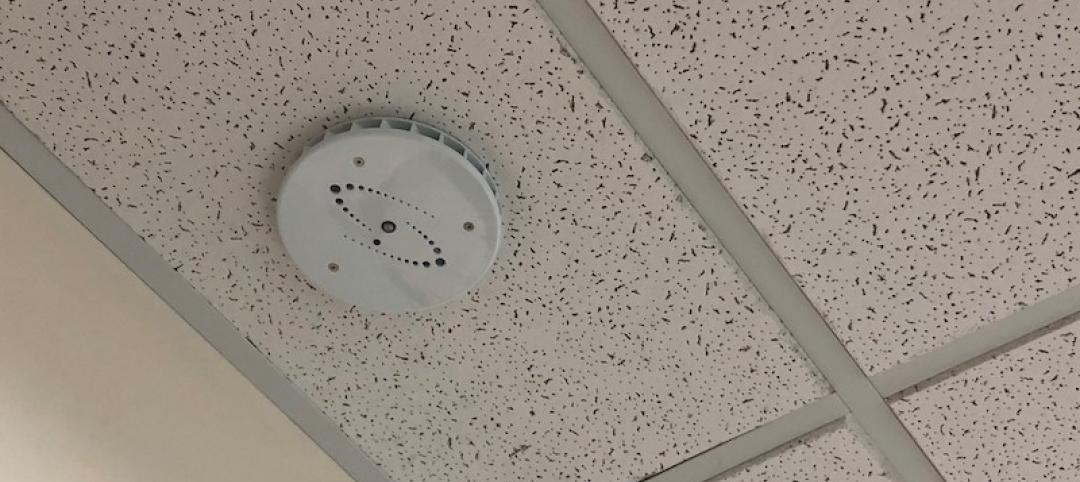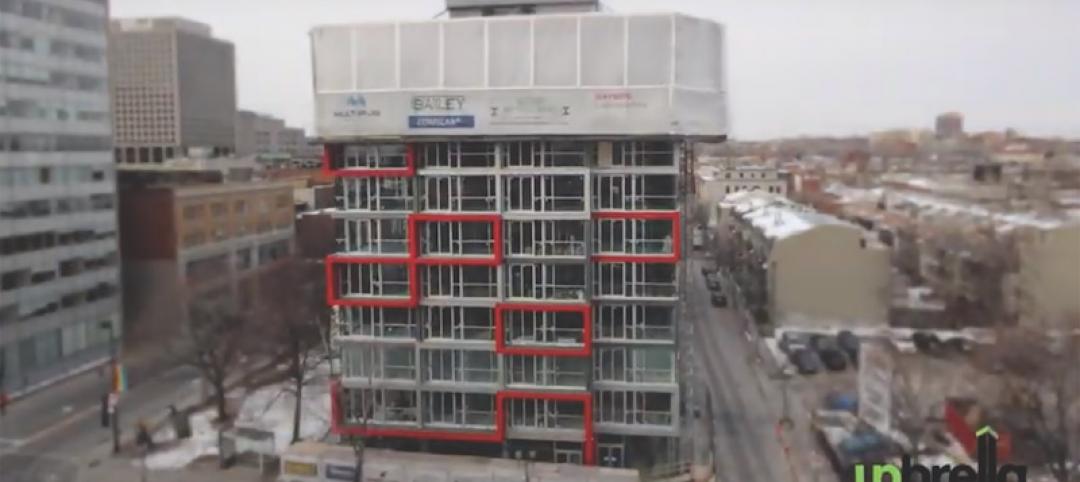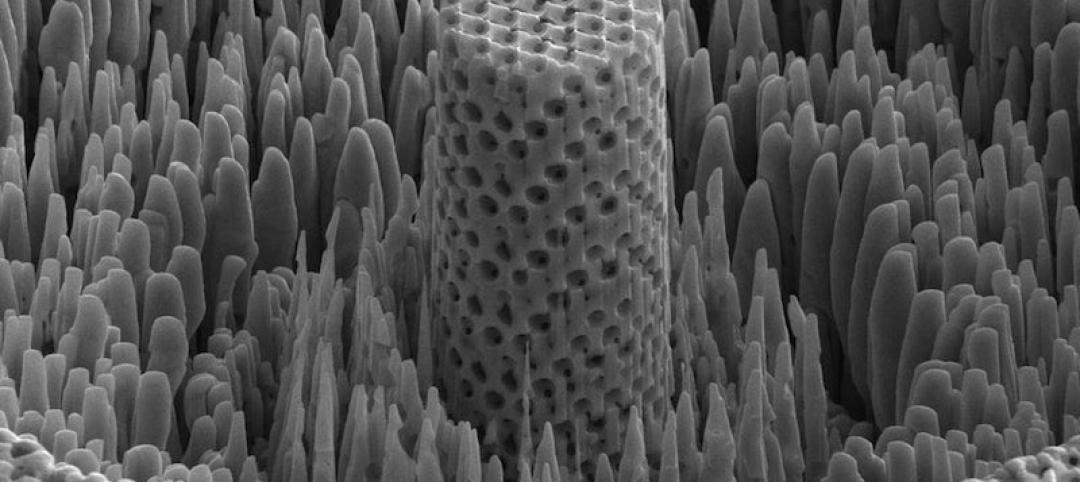When it comes to the building of the future, every material used in construction needs to pull its weight. For a building to become as sustainable, environmentally friendly, and as comfortable as possible, there can be no slackers on the materials front.
Take the newest offering from E Ink. Using the same E Ink bi-stable ink technology found in its current line of eReaders and wearables and integrating it with traditional architectural materials, E Ink Prism creates a new way for commercial spaces such as large hotel lobbies, office complexes, and airports to change the aesthetics of the space without resorting to a large LCD or LED screen—and the light pollution and higher energy demands that come with it.
E Ink Prism has a paint-like appearance and a wide-ranging compatibility with various materials and shapes that make it highly suitable for architectural applications. E Ink Prism comes in seven different colors—Voyage (dark blue), Daydream (cyan), Blush (red), Sprout (green), Zest (yellow), Harvest (brown) and Waltz (black)—and can be sized to be compatible with most configurations, patterns, and materials.
The film can be programmed to dynamically switch colors in nearly any pattern, shape, speed, and sequence. During these visual changes, E Ink Prism only requires ultra-low power and never requires the use of electrical outlets. The film does not provide any illumination and, as with paint, its visibility is based on ambient light.
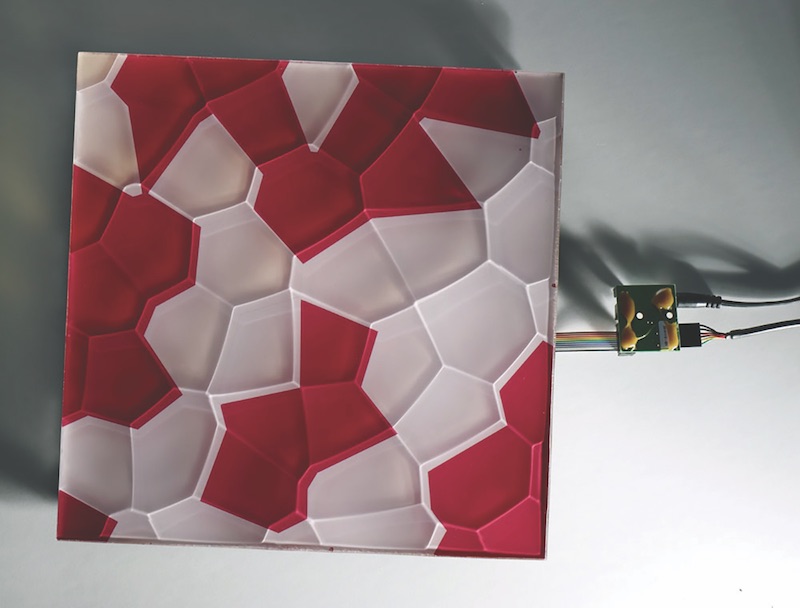 Courtesy of E Ink.
Courtesy of E Ink.
Recent developments are beginning to point to a much more utilitarian future for paint. Researchers at RMIT University, Melbourne, have developed a paint that can absorb water vapor and use solar energy to split it and generate hydrogen. Hydrogen, which is often referred to as the cleanest source of energy, can be used in fuel cells or in conventional combustion engines as an alternative to fossil fuels.
The paint contains synthetic molybdenum sulfide, a new material that acts as a semiconductor and catalyses the splitting of water atoms into hydrogen and oxygen, according to RMIT. All that is needed for the paint to produce fuel is solar energy and moist air.
Applied to a brick wall of a building, the paint instantly converts the wall into an energy-harvesting, fuel-production space. Areas with humid climates provide ideal applications for the paint. But its developers say the material can also be used in applications in very dry, hot climates near oceans. As the seawater is evaporated, the paint will absorb the vapor and produce fuel.
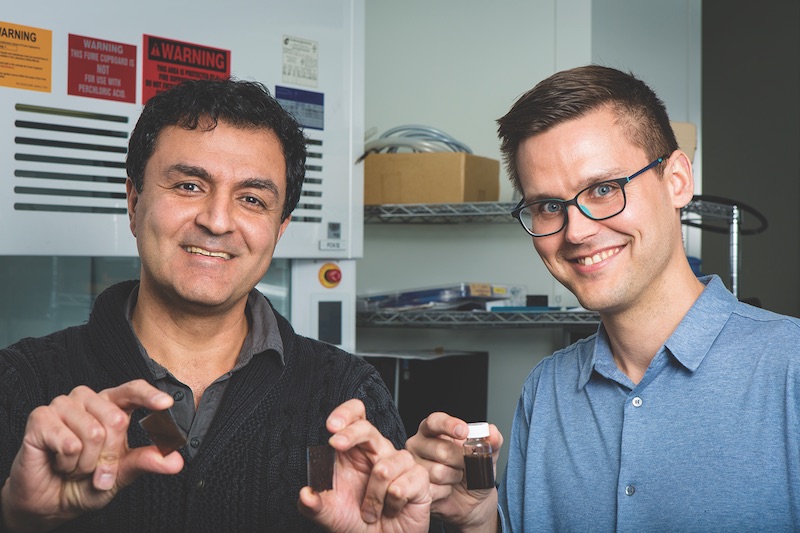 Courtesy of RMIT University.
Courtesy of RMIT University.
Related Stories
Great Solutions | Apr 13, 2020
Family workstations highlight the new Fairfield Area Library
The workstations are the perfect remedy for squirming, restless children and toddlers.
Great Solutions | Feb 5, 2020
Power moves: The Shed
Precise positioning of mechanicals above its lighting keeps New York’s kinetic event space, The Shed, running.
Great Solutions | Dec 18, 2019
Robot uprising
Thyssenkrupp’s robotics interface platform helps robots use elevators like humans.
Great Solutions | Nov 12, 2019
Skanska designs personal protective equipment tailor-made for the female workforce
A safety vest is the first piece of equipment to undergo an update.
Great Solutions | Oct 3, 2019
REEF Technology wants to turn parking facilities into urban mobility hubs
The company currently operates 4,500 parking lots in 25 markets across North America.
Great Solutions | Aug 30, 2019
An ‘Internet of Beings’? Kinetic flooring promises more than just energy generation
Pavegen says its technology delivers a new level of human engagement in sustainability initiatives.
Great Solutions | Aug 7, 2019
Earthquake response system takes the guesswork out of seismic safety
The platform provides real-time monitoring to help avoid unnecessary evacuations and improve emergency response.
Great Solutions | Jul 12, 2019
Smart sensor maintains privacy, enhances safety in sensitive spaces
The HALO IOT sensor is designed for use in places where cameras are not welcome.
Great Solutions | Apr 9, 2019
Raising the roof is cool again
Upbrella allows for floor-by-floor building construction that is, reportedly, safer and more productive than traditional methods.
Great Solutions | Mar 12, 2019
When is wood not really wood?
Inspired by the look and cellular nature of wood, researchers create 3D-printed “digital wood” and “metallic wood” that is as strong as titanium, with the density of water.


